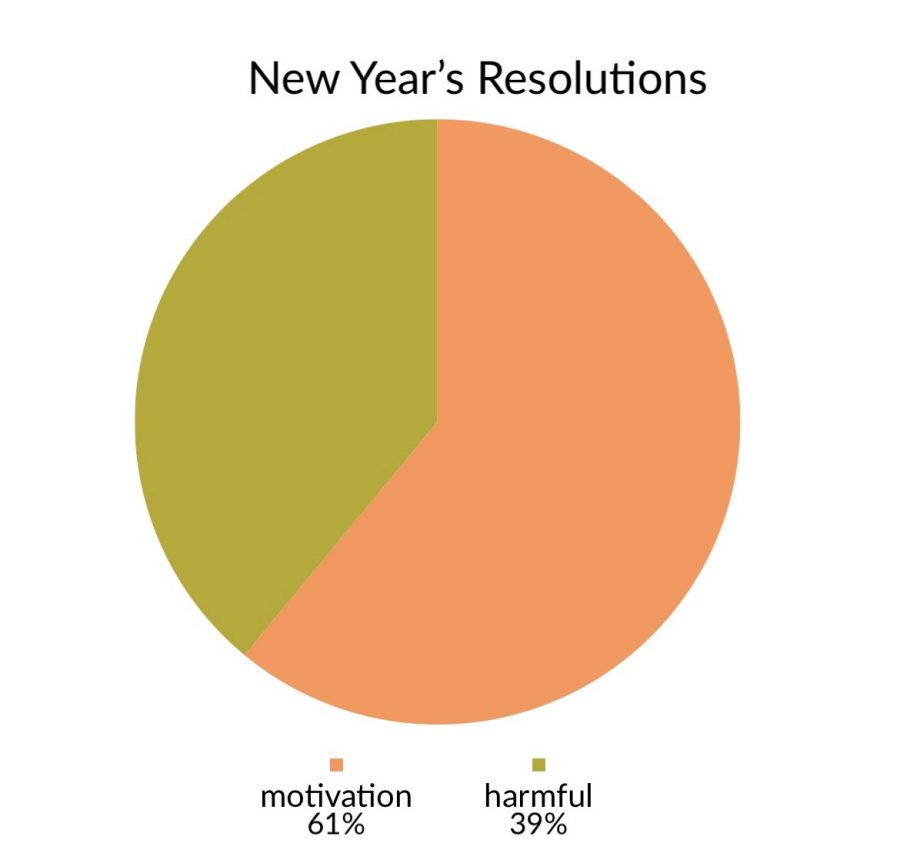The benefits and downsides to New Year’s resolutions
The results for a poll taken show the majority of voters think making New Year’s resolutions is more motivational than harmful. 61% of voters thought they were motivational, and 39% thought they were harmful.
The motivations and pressures that New Year’s resolutions provide can have both benefits and downsides to them. For some people, the motivation and enthusiasm the tradition provides are enough to keep them working towards their goals throughout the year. Other people may not like the pressure New Year’s resolutions cause, and they choose other ways to achieve their goals.
The idea of a fresh start can positively motivate some to work on their New Year’s resolutions without being discouraged by their past actions.
“I know like a bunch of people who believe that New Year’s is like a completely new start for them, and they can … set their goals to better themselves … and I think it really helps,” Emily Totty (12) said.
New Year’s resolutions allow people to reflect on themselves throughout the year as they make progress on their goals. When someone looks back to where they first started, seeing real progress can encourage them to continue working toward their goals.
“I feel like [the pressure of New Year’s resolutions] could also be good,” Amira Rabaa (10) said. “I know people who, when they started doing healthier things … have become better, happier people.”
New Year’s resolutions can also provide negative pressure. At the beginning of the new year, many look forward to accomplishing their goals. After some time, though, this excitement wears off, and the intimidating burden to complete the resolutions sets in.
“[The initial feeling] would probably be like caffeine, like you get super excited as the first day starts, but then it wears off,” Garret McNeil (9) said.
According to a 2015 study done by the University of Scranton, only 8% of people who set New Year’s resolutions actually complete them. Most give up or forget about their resolutions within the first months of the year. Unrealistic goals put too much negative pressure on a person, which can cause them to give up on their goals.
“When you set a New Year’s resolution, it’s not okay to put stuff down that you … know you probably can’t do,” Rabaa said. “So I think if you think realistically when doing this, then yeah, you can actually accomplish [the resolutions].”
For people who can not keep up with their New Year’s resolutions throughout the year, other methods exist.
“It’s more of a… ‘what did I lack today, and what can I expound upon tomorrow’… self-regulation process,” McNeil said.
In the end, New Year’s resolutions inspire people to complete goals. The motivation and pressure that comes afterward works for some and does not work for others. What matters is still finding a way to achieve throughout the year.
Your donation will support the student journalists of White Station High School. Your contribution will allow us to purchase equipment and cover our annual website hosting costs.


































